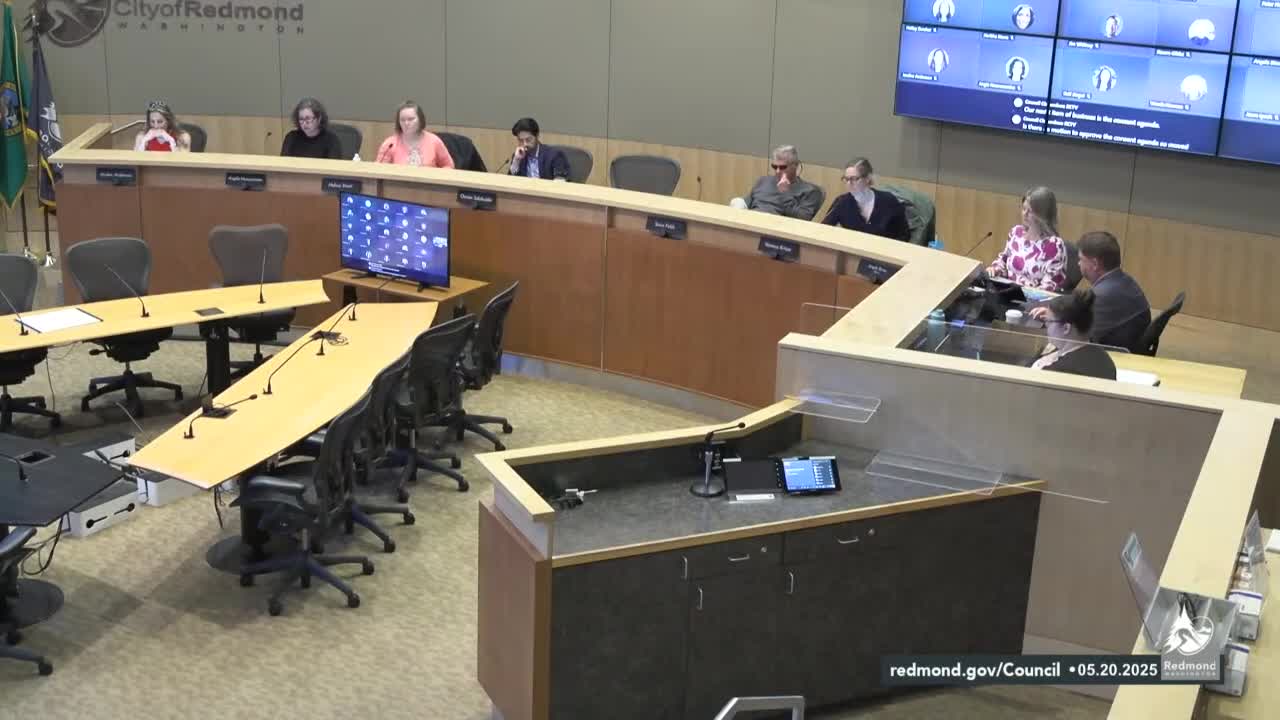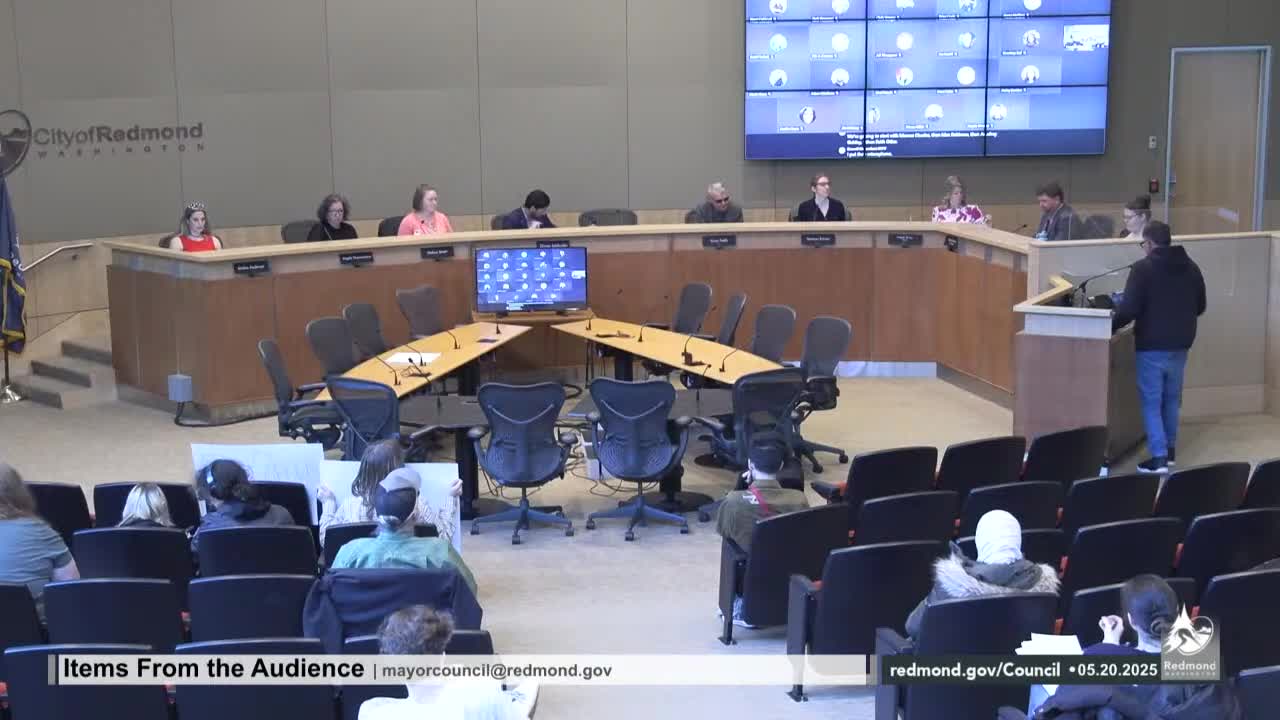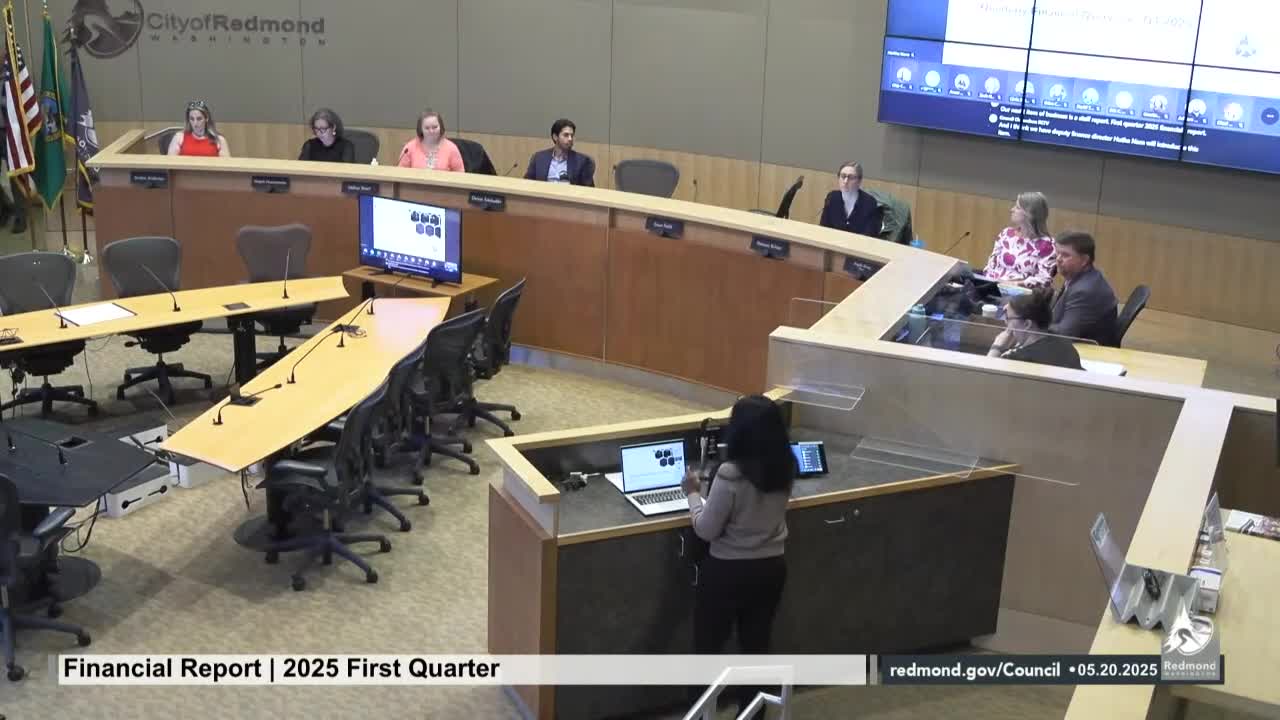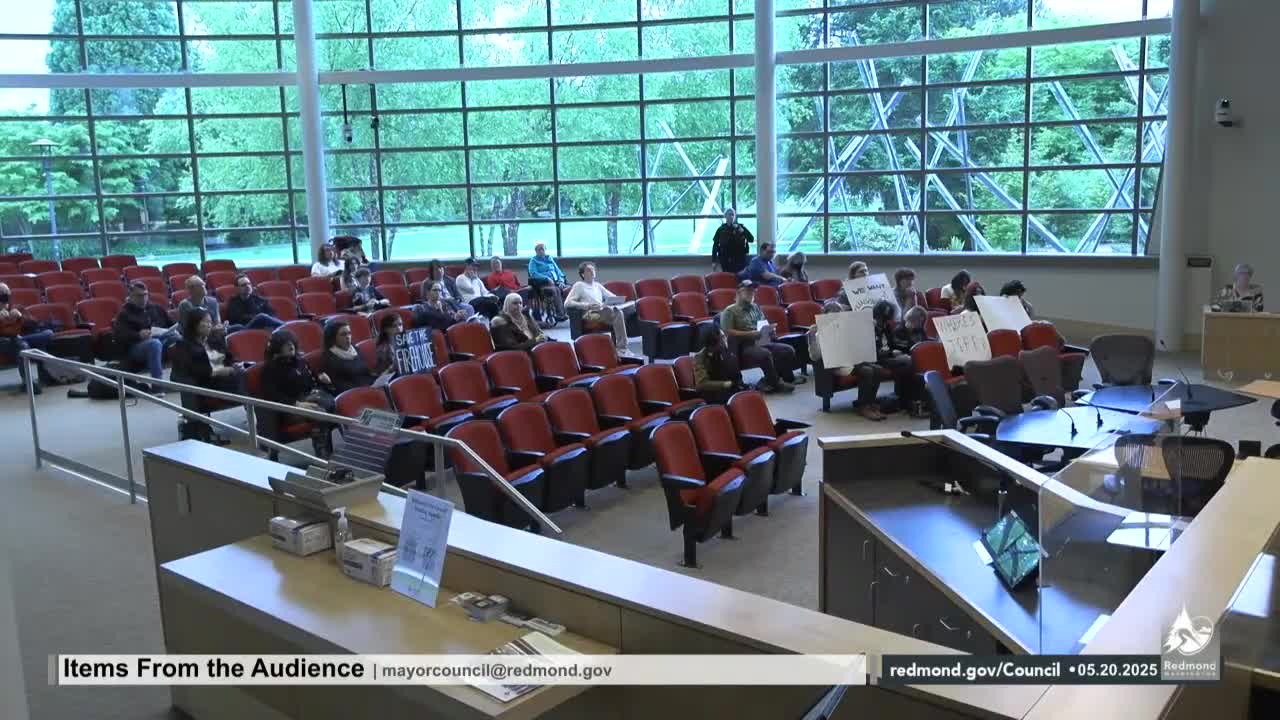Article not found
This article is no longer available. But don't worry—we've gathered other articles that discuss the same topic.

Redmond council approves consent agenda including Medic 1 levy placement and new behavioral health classification

Promoters outline sound upgrades at Miramar Live, offer event calendar to Redmond council

Redmond staff report steady Q1 finances; deputy director flags economic uncertainty

